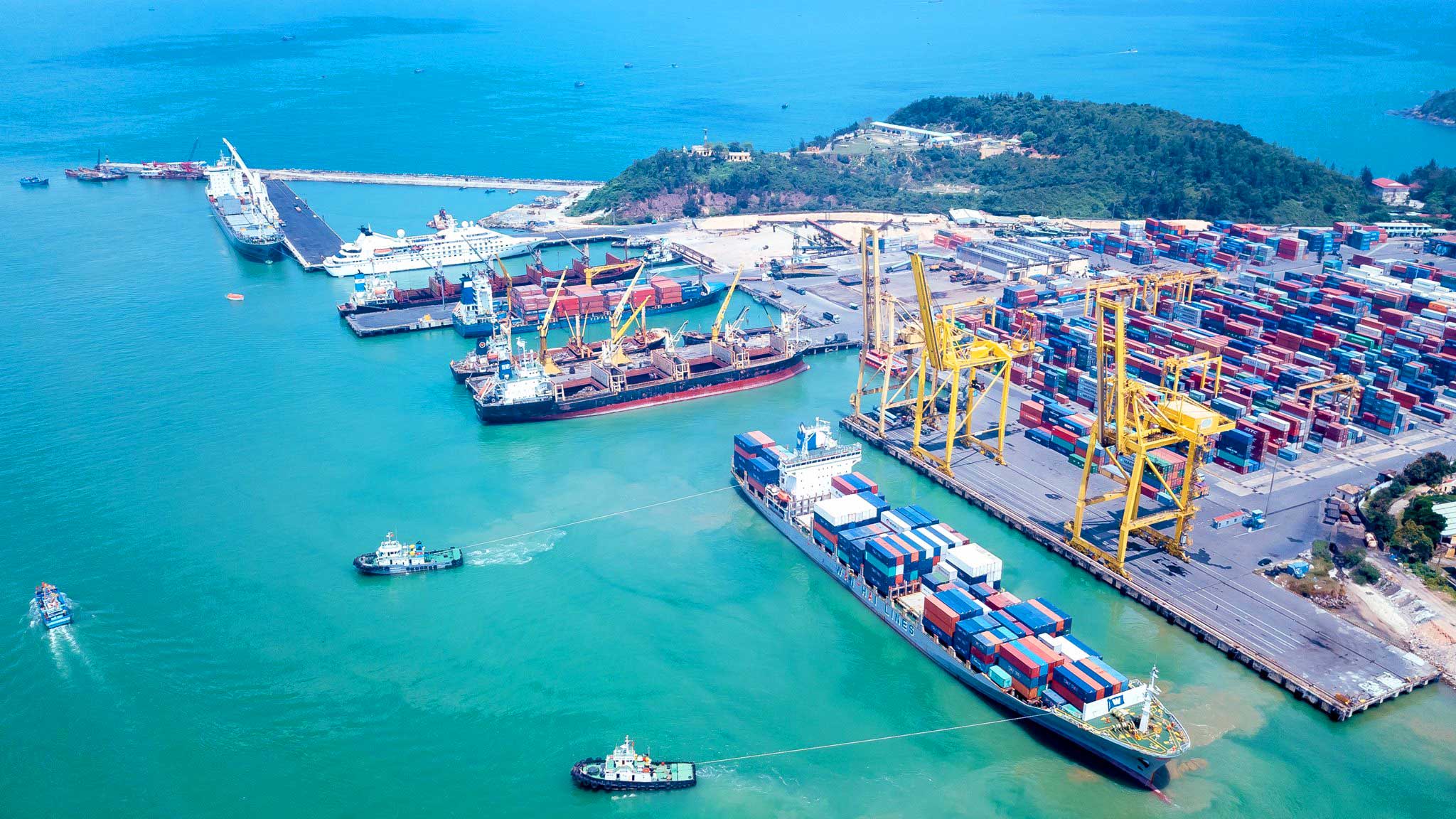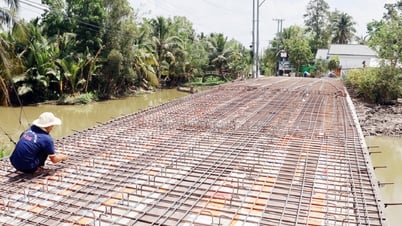
State economy is not just state-owned enterprises
The state economy (KTNN) is understood to include the following components: 1- The enterprise sector (DN) includes enterprises in which the State owns 100% of the charter capital and enterprises in which the State holds shares or controlling capital; 2- The non-enterprise sector, in addition to state-owned assets, also includes land, forests, resources in the sea, airspace, natural resources, means of production, state budget, national reserves...
Thus, the State Audit is not only a state-owned enterprise (SOE). The State Audit component includes state-owned elements and elements owned by the entire people that the State is assigned to represent the owner and manage in a unified manner, including SOEs. The state economy and SOEs have in common that they are assets owned by the entire people, managed by the State, and serve the interests of the entire people. However, the State Audit has a broader scope and role than SOEs. It is not only based on the production and business efficiency of the SOE sector but also on the economic strength expressed in key sectors and fields from financial institutions, law, management strength to the operation of the political system. Affirming the position and building the State Audit to play a leading role does not mean that SOEs will hold a dominant position in key economic sectors and fields of the economy, nor will they have a monopoly in many fields. State-owned enterprises, the core force of the State-owned economic sector, will compete equally with enterprises from other economic sectors. However, with their responsibilities, State-owned enterprises will be pioneers in key sectors and industries that require large capital, advanced and modern technology, sectors that the private sector cannot or does not want to do, key sectors and fields related to security and defense, etc.
With such a large scope, state ownership and the State Audit hold a key position and an important role in the country's socio-economic development process, creating a basic foundation for the development of all industries, fields, economic sectors and types of enterprises in the national economy.
The role of state economy in developed capitalist countries
Even in countries with market economies developing along the capitalist path, the state economic sector also plays an important role and depending on the management strategy of each country, this sector has different scope and proportion.
However, the perception of the position and role of the state economic sector has had different ups and downs. The role of the State Audit began to be valued after the economic crisis of 1929 - 1933, especially the awareness of this area was most evident in the period from the 70s of the 20th century - the period of influence of the theories of "National Welfare", "Social Market Economy"... At this stage, many countries, in addition to accepting to increase the state's responsibility towards society and advocating to promote state intervention in the market through the usual forms and tools of the state (promulgating laws, regulating the economy, inspecting, controlling), also through the state directly owning a huge amount of facilities, using finance, influencing service areas that were previously solved by society according to the market mechanism... In terms of scale, in reality in these countries, state ownership is very large, including 4 main areas: 1- State ownership of land, resources, transportation systems; 2- State-owned enterprises and mixed enterprises with state-controlled shares; 3- State finance in a broad sense includes the entire national income mobilized into the state budget; in a narrow sense, it only includes economic expenditures for development investment or spending on public services; 4- Organizations providing public services, such as schools, hospitals, libraries, sports and cultural facilities... Many countries use the private sector to invest in transport infrastructure in the form of BOT, but after the exploitation period, these works are all transferred to state ownership.
Although the US considers itself a free market economy, total state ownership in the US in the late 1980s accounted for 20% of the country's total assets. The proportion of US government spending in the country's gross domestic product (GDP) increased from 26.8% in 1960 to 41.3% in 2010. During the global economic and financial crisis of 2008-2009, the US government used its economic tools by spending up to 700 billion USD to rescue the national finances through buying bad debts of banks, stimulating finance, promoting growth, etc.
In some other G7 countries, the proportion of state ownership is even higher, at around 30% of total national assets. Regarding land alone, the scale of state ownership in Western countries is very large.
In particular, the State Audit in capitalist countries plays an important role in providing public services, transportation, parks, ensuring public security, etc. For example, the UK is considered the birthplace of free market economic theory and is one of the first places to accept private participation in developing public infrastructure. However, by 2018, the British Government decided to completely stop privatized infrastructure projects on the grounds that public projects with private participation cost more than public projects implemented solely by the state.
Thus, it can be seen that even in capitalist countries with highly developed market economies, the State Audit in general and State-owned enterprises in particular still play a very important role, being one of the macro-management tools to help overcome the shortcomings of the market economy. The level and scope of the State Audit and State-owned enterprises sector are not fixed but are established on the basis of the requirements of socio-economic development.
How to understand the "leading" role of the State Audit Office correctly?
The 10th Party Congress affirmed the leading role of the State economy in the socialist-oriented market economy: “The State economy plays a leading role, is an important material force for the State to orient and regulate the economy, create an environment and conditions to promote the development of economic sectors together. The State economy, together with the collective economy, is increasingly becoming a solid foundation of the national economy” (1) .
The Platform for National Construction in the Transitional Period to Socialism (supplemented and developed in 2011), approved by the 11th Party Congress, affirms: “Develop a socialist-oriented market economy with many forms of ownership, many economic sectors, forms of business organization and forms of distribution. Economic sectors operating under the law are all important components of the economy, equal before the law, developing together in the long term, cooperating and competing healthily. The state economy plays a leading role. The collective economy is constantly consolidated and developed. The state economy, together with the collective economy, is increasingly becoming a solid foundation of the national economy. The private economy is one of the driving forces of the economy. The economy with foreign investment capital is encouraged to develop” (2) .
Article 51 of the Constitution of the Socialist Republic of Vietnam, passed by the 13th National Assembly, 6th session on November 28, 2013, affirms: "Vietnam's economy is a socialist-oriented market economy with many forms of ownership and many economic sectors; the state economy plays the leading role."
Talking about the leading role of the State Audit in the economy is talking about its importance and decisive nature for the development direction of a country; the State Audit sector holds key positions in the economy and is a force capable of intervening, regulating, guiding, assisting, linking, and creating conditions for other economic sectors to develop together.
The 10th Congress also pointed out the key role of the State Audit: first, the State Audit is a material force that helps the State orient the national economy towards socialism; second, the State Audit is the strength behind the State's regulatory policies; third, the State Audit's activities are to create a common development environment for all economic sectors, not just for State-owned enterprises; fourth, it reaffirms once again that the State Audit is broader than State-owned enterprises, or in other words, State-owned enterprises are only a part of the State Audit (3) .
When introducing the policy of innovation and development of a socialist-oriented market economy with many economic sectors, our Party determined that all economic sectors are equal before the law, develop together in the long term, cooperate and compete healthily, in which the State economic sector plays a leading role and does not "lead" other economic sectors. Affirming that the State economic sector plays a leading role does not mean discriminating, treating or restricting the role and development of other economic sectors, but that all economic sectors have a dialectical relationship with each other, intertwined, linked together, and mutually influencing each other, one economic sector is the premise for the development of another economic sector.
Thus, affirming the leading role of the State economy does not mean returning to the old concept, considering the development of state ownership as the goal of economic development, or assuming that, in order to build a new regime, it is necessary to first develop state ownership (reforming production relations), paving the way for the development of productive forces. For our country, the transition to a market economy requires the private sector to develop equally and gradually assert its position, so although the State economy still plays a leading role in the economy, its scope, level and form need to have fundamental changes. The State economy only needs to be maintained and developed in necessary places, with a supporting and guiding role to ensure the stable development of society; areas where other economic sectors can develop and operate more effectively will not need the presence of the State economy. On the other hand, the socialist orientation of our country's economy always requires identifying a number of key areas to achieve socio-political goals.
Why does the state economy need to play a leading role in Vietnam?

It is undeniable that the development of capitalist countries has brought about many positive results, but along with that there always exist some of the following objective trends:
- Social justice has become an inevitable requirement of economic development itself. Justice for development and development for justice are not only moral slogans but also a strong driving force, an endogenous factor of economic development. Of course, justice here does not mean equalizing, equating diligence with laziness, positivity with negativity, efficiency with incompetence,... that will lead to the elimination of human motivation to strive.
- Along with economic growth is the requirement for social progress. Economic growth with a decline in spiritual and moral life will immediately threaten the sustainable development of the economy. The objective factor of life requires that economic growth must go hand in hand with social progress. Social progress is the result but at the same time it is also the driving force, the internal factor of economic development.
- Economic growth must go hand in hand with political and social stability. Stability in these areas is the premise for economic development.
Economic development without ensuring these development trends will inevitably lead to collapse. The bourgeois state, which is essentially a representative and protector of the interests of a group of people, first of all the owners, will never be able to absolutely ensure the development of these trends. To do this, the economy must be governed by a state that is truly of the people, by the people and for the people . Only such a state can ensure the interests of the vast majority of working people, and orient towards the development of each individual, while at the same time the development of the collective, the community and society. And, to ensure the interests of the vast majority of working people, the State economy - mainly based on the regime of ownership by the entire people represented by the State - must play a leading role in that economy. This also clearly shows the nature and characteristics of a socialist-oriented market economy, completely different from the market economy in capitalist countries, which is built on the basis of monopoly capitalist ownership.
Besides, the key role of the State Audit also has the following meanings for the Vietnamese economy:
Firstly , it is the locomotive, guiding and leading other forms of ownership in the development of special fields, such as fields that require a lot of investment capital, have high scientific content, and some newly formed special fields. In the process of developing a socialist-oriented market economy, there is an increasing need to form a number of new fields that require large investment capital and high technology, which are very difficult to develop on their own. In the context of newly developed market relations, the private sector is still small and does not have the ability to invest heavily, the state-owned sector must inevitably take on the role of locomotive and leader in these new fields. When performing this role, it does not mean that state ownership plays a permanent monopoly role, but the leading role is shown in that when other forms of ownership are capable of participating and have the ability to participate effectively, the State promptly withdraws capital from the invested field, to continue performing its role in investing in other new fields.
Second , ensure the development of national competitiveness. Due to the history of development, the State Audit has taken on a series of competitive industries. When the private sector has not yet developed, the State must directly participate and invest in development, supporting leading enterprises in the early stages. When the private sector gradually grows, the State Audit gradually withdraws or changes ownership, and in the long term, the State Audit may not need to play a leading role in areas with competitive advantages.
Third , for national security, the State Audit plays a leading role in the following two basic contents: 1- Holding especially important sectors related to national defense and security (production and repair of weapons and specialized equipment for national defense and security, etc.). 2- Participating in
The State Audit Office holds a number of essential and important positions to maintain social orientation, acting as a counterweight in international economic integration (wholesale of food, gasoline; electricity production; exploitation of important minerals; a number of important mechanical, electronic, and information technology products; maintenance of railways, airports, etc.). Fourthly , in terms of society, due to the nature of ownership and purpose of operation, the State Audit Office plays an important role in shouldering social functions. This role is reflected in the fact that the State Audit Office must undertake sectors in difficult areas with political and social significance that the private sector does not want to invest in, ensuring a balance in investment and development by region, undertaking sectors producing essential public goods, implementing social security policies, hunger eradication and poverty reduction programs, etc.
The actual role of the state economy in Vietnam in recent times
In Vietnam, the State Audit has increasingly affirmed its role and position in the economic sectors. Due to its nature and purpose of operation, the State Audit sector has a great political and social role. Enterprises in the State Audit sector are always pioneers in the cause of industrialization and modernization of the country; playing an important role in a number of key sectors and fields of the economy, such as telecommunications, coal, electricity, petroleum, mining, finance, banking and essential public services to ensure domestic consumption, production and export needs.
State-owned enterprises are both business entities and core economic forces used by the State to influence and participate in economic activities. As business entities, State-owned enterprises must implement economic accounting, be financially autonomous, and operate effectively to ensure the expansion of the reproduction process, and ensure the increase of economic resources that the State has invested in these enterprises. As a force participating in economic activities as a tool of the State, State-owned enterprises need to contribute to creating socio-economic stability, helping the State achieve economic, political, and social goals.
According to the official results of the 2017 Economic Census announced by the General Statistics Office on September 19, 2018, the profit margin on revenue (calculated as total pre-tax profit/total revenue) of state-owned enterprises reached 6.6%, while this margin in the foreign-invested sector (FDI) was 6.7% and the state-owned enterprise sector was only 1.9%; the number of state-owned enterprises was small, but taxes and other payments were the highest with an average of VND 104 billion/enterprise. This level was assessed by the General Statistics Office as much higher than that of the FDI sector with an average of VND 18 billion/enterprise and of non-state enterprises with VND 1 billion/enterprise (4) . ![]()
Looking back over the past years, when the world economy was in recession, natural disasters and epidemics were rampant, thanks to the strength of the State Economic Sector, Vietnam was able to ensure macroeconomic balance, major balances of the economy, contributing to curbing inflation, maintaining a relatively high growth rate. Along with economic growth, the State Economic Sector also actively contributed to ensuring social security, developing the fields of health, education, creating jobs, eliminating hunger, reducing poverty, ensuring political and social stability, security - defense, national sovereignty, contributing to enhancing the country's position in the region and the world...
However, when the State holds a huge amount of ownership, the disadvantages (disabilities) of State ownership originating from the characteristics of this form of ownership are increasingly revealed and create a trend of reducing the efficiency of this economic sector, leading to a decline in the efficiency of the entire economy. We are restructuring the State-owned enterprise sector, focusing on key, essential areas, important areas and security - defense, areas where enterprises of other economic sectors do not invest. State-owned enterprises must move forward to truly operate according to market mechanisms, taking economic efficiency as the main evaluation criterion; autonomy, self-responsibility, and equal competition with enterprises of other economic sectors according to the provisions of law.
Thus, it can be affirmed that determining the leading role of the State economy in the socialist-oriented market economy is correct, suitable to the conditions of our country and is an important criterion to ensure the socialist orientation of the economy./.
------------------------------
(1) Documents of the 10th National Congress of Delegates, National Political Publishing House, Hanoi, 2006, p. 83
(2) Documents of the 11th National Congress of Delegates, National Political Publishing House Truth, Hanoi, 2011, pp. 73 - 74
(3) Associate Professor, Dr. Vu Van Phuc: Contributing to comprehensively and synchronously promoting the country's innovation , National Political Publishing House Truth, Hanoi, 2016, p. 159
(4) Vietnam Economic Times, No. 217, September 10, 2019
Source: https://tapchicongsan.org.vn/web/guest/nghien-cu/-/2018/815713/ve-vai-tro-chu-dao-cua-kinh-te-nha-nuoc.aspx







![[Photo] Pink ball and table tennis](https://vphoto.vietnam.vn/thumb/1200x675/vietnam/resource/IMAGE/2025/5/26/d9f770bdfda243eca9806ea3d42ab69b)
















![[Photo] French President Emmanuel Macron and his wife begin state visit to Vietnam](https://vphoto.vietnam.vn/thumb/1200x675/vietnam/resource/IMAGE/2025/5/25/03b59c7613144a35ba0f241ded642a59)
![[Photo] Ea Yieng commune settlement project abandoned](https://vphoto.vietnam.vn/thumb/1200x675/vietnam/resource/IMAGE/2025/5/25/57a8177361c24ee9885b5de1b9990b0e)

































































Comment (0)